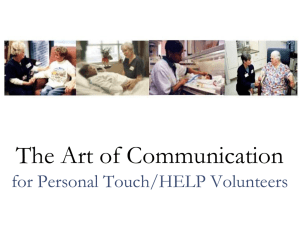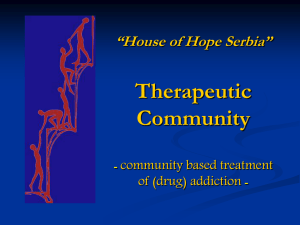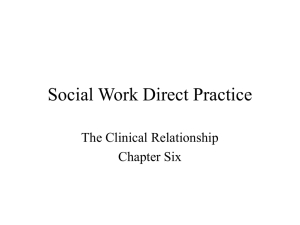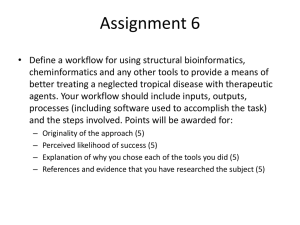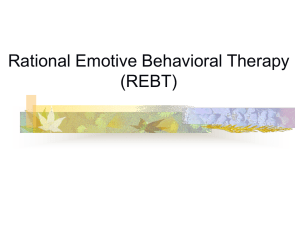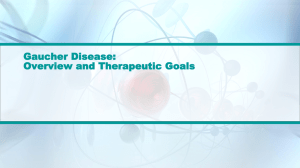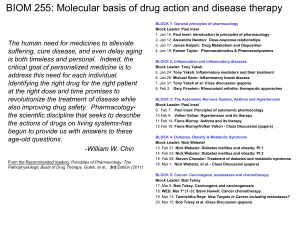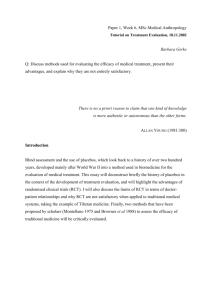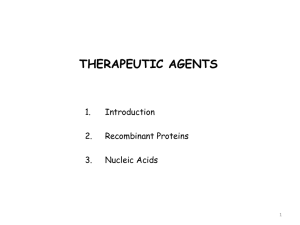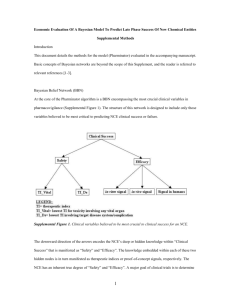InnovationScan_Submission__Power_Point_NeuroQore_MT
advertisement
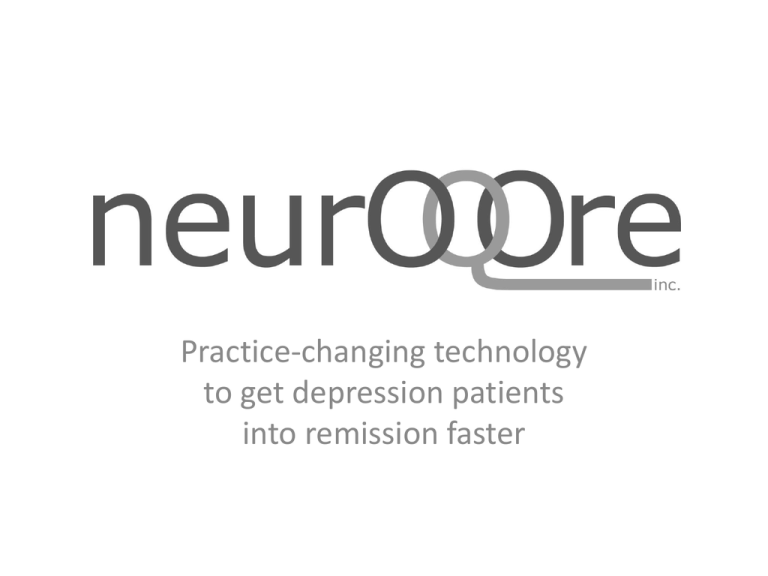
Practice-changing technology to get depression patients into remission faster What’s the Problem? • Every year, over 40 million people in the US, Canada, EU, and Japan are diagnosed with major depressive disorder • 52% are unsatisfied with prescription drugs, 29% are satisfied, the rest try psychotherapy (7%), electroconvulsive therapy (7%), implants (4%), and transcranial magnetic stimulation (1%) • Pharmacology: most popular treatment, 30% efficacy, expensive, unwanted side effects Solution to the Problem • Innovations to make transcranial magnetic stimulation (TMS) a viable alternative to pharmacotherapy – Patent-pending disruptive semiconductor switch emits novel pulse – Pulse doubles therapeutic benefits (60% efficacy) – Increased instrumentation lifespan from 75 to 1,000 patients, reducing costs by 75% – Robotic stimulator automates and personalizes treatment according to brain scans KUKA LWR5 robot arm Practice-changing technology • Technical overview – Switch emits a new pulse that mitigates the confounding physiological effects of conventional TMS pulses, which are responsible for low clinical efficacy – Switch is installed in NeuroQore’s stand-alone therapy unit – NeuroQore is focused on depression, but technology has applications for numerous cognitive disorders, including Alzheimer's, Parkinson’s, multiple sclerosis, autism, ADHD, and anxiety – Four U.S. provisional patents filed, filing a patent cooperation treaty application – Clinical trials on 120 depression patients (16 months) needed for regulatory approval and reimbursement in Ontario, our first focus region, full funding secured through Royal Ottawa Hospital and Health Technology Exchange Market Opportunity • Innovations will allow NeuroQore to supplant competitors, become a leading global manufacturer, and challenge Big Pharma • Therapeutic market for depression worth $10 billion per year – Growing • Research market worth $55 million per year • Market segments: – Therapeutic market: hospitals, clinics, competitors – Research market: universities, research centres Product • NeuroQore’s switch and therapy unit create value for different customers – Researchers: Potential for new research and development, increased funding, more publications – Patients: Clinical efficacy and getting into remission faster – Therapeutic providers: Increased clinical efficacy, expanded instrumentation lifespan, reduced costs – Businesses and governments: increased efficacy, reduced health-care costs, increased productivity • Product-ready status – Switch can be built, new therapy unit being finalized in a pilot study Path to Market • Products are delivered using existing distribution networks • For marketing and sales, five channels will be used: direct contact by sales force, direct contact for research collaboration by research team, indirect marketing through distributors, strong online presence, and hosting an annual TMS conference • Business model: Selling high-ticket hardware, with support and service providing recurring revenue – Lease arrangements available for researchers and providers – We envision the establishment of therapeutic clinics based on NeuroQore technology Competitive Edge Company Pulse Lifespan Positioning NeuroQore (Canada) Neuronetics (US) Magstim (UK) Magventure (Denmark) New Confounded Confounded Confounded 1,000 patients 100 patients 100 patients 100 patients Robotic Manual Manual Manual Nexstim (Finland) Brainsway (Israel) Neuronix (Israel) Confounded 100 patients Confounded 100 patients Confounded 100 patients Manual NA Manual Financial Forecast • Research market (Q42013–Q42014) • Therapeutic market (2015–16) • High-ticket item revenue model – 1 research product ($1M): Stimulator ($500,000), robot ($400,000), support and service ($100,000/year) – Therapeutic model: ($825 per patient): Stimulator ($750), robot ($50), support and service ($25) • Time to Profitability – Projection: $3M in 2014, $18 million in 2015 – Research market revenues will be used to bootstrap throughout clinical trials, in anticipation for therapeutic market launch ($18M in 2015, $41M in 2016) Team • Management – Dr. Mehran Talebinejad (PhD Electrical/Biomedical Engineering) is the Founder and CEO • Over 10 years of experience in medical technology research and development and two years of experience in technology innovation and management • Selected as one of the National Capital Region’s 100 Rising Star CEOs by Invest Ottawa – Dr. Adrian Chan (PhD Electrical Engineering) is the Technology Officer • An associate professor at Carleton University and the director of the OttawaCarleton Institute for Biomedical Engineering, Dr. Chan has more than 15 years of experience in health technology research and development • Specializes in TMS and signal and image processing • Advisors – NeuroQore has an advisory board with expertise on finance, investment, law, manufacturing, clinical psychiatry, marketing, and sales and mentors from the public and private sectors Key Milestones • Product design and development – Raised over $400,000 in public and private sector grants – Manufactured two switches – Therapy unit being finalized in pilot study • Established key partnerships – $200,000 worth of equipment from KUKA Robotics – Medical partnerships with the Royal Ottawa Mental Health Centre and Health Quality Ontario • Raised $1.2M for clinical trials (16 months) • To accomplish our next goals, we move from Ontario Centres of Excellence Market Readiness Phase II to Phase III. Use of Proceeds • With funding, NeuroQore can build switches, install units at select hospitals/research centres, and hire highly qualified personnel to generate proof points using metabolic and functional imaging, which is needed for successful commercialization in the therapeutic markets for depression and eventually other cognitive disorders • Starting at the beginning of Q42013 and ending by the end of Q42014, we could accomplish generating proof points for regulatory approval and reimbursement and developing advertisement content for launch onto the therapeutic market for depression in 2015–16 Investment Highlights • Innovations will allow NeuroQore to supplant competitors, become a leading global manufacturer • Significant revenue potential: Research market worth $55M/year, therapeutic market worth $10B/year – Projection: $3M in 2014, $18M in 2015, $41M in 2016 • Strong team, over 25 years of combined experience • Established key partnerships, secured first users • Secured $1.2M for clinical trials, ready to begin (16 months), set to commercialize technology Practice-changing technology to get depression patients into remission faster
